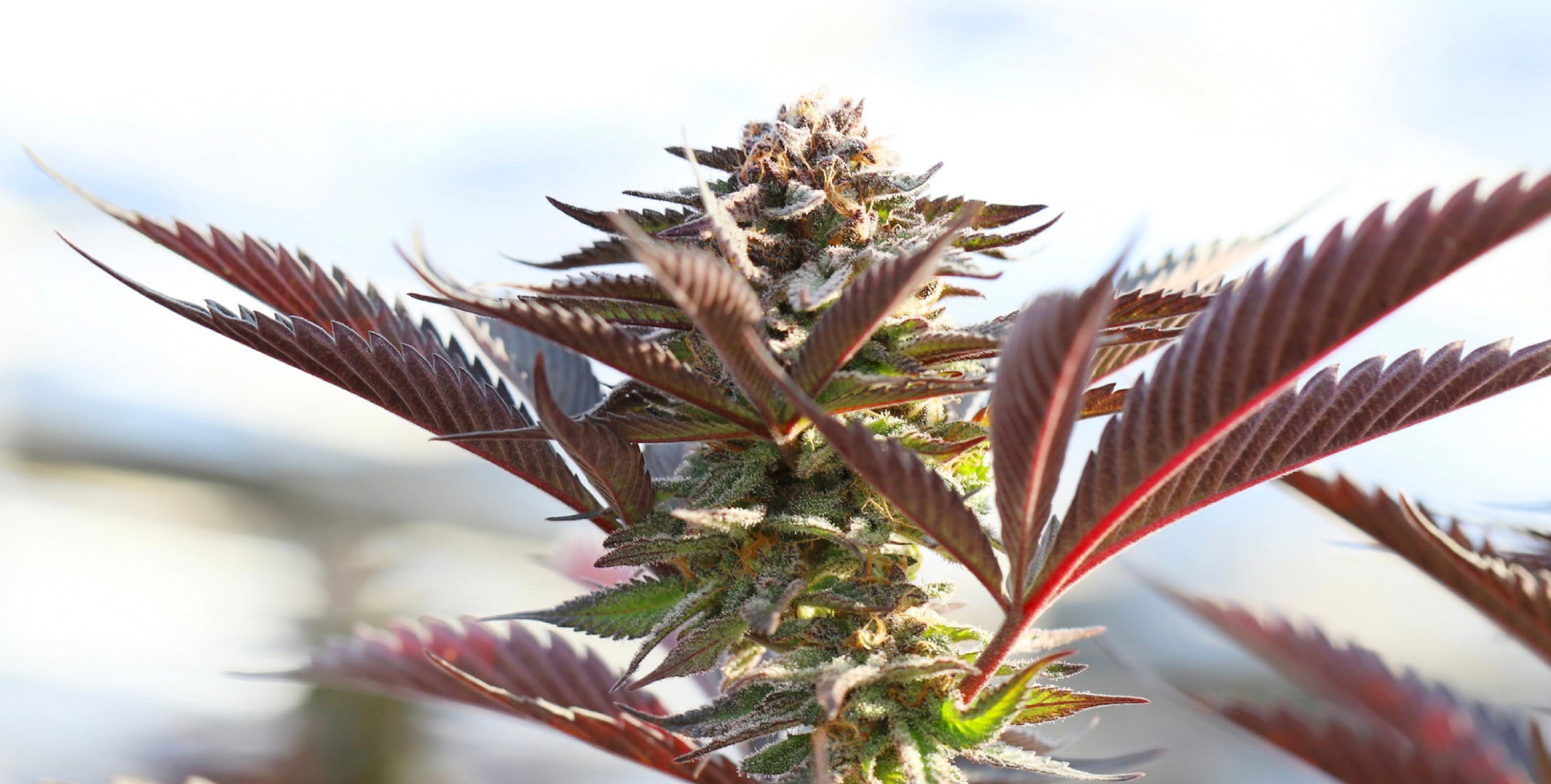by Sugar Team October 29, 2021 11 min read

One of the myths that we’ve covered in a previous blog post is that there is not much scientific research surrounding CBD, or recent studies about smoking CBD cigarettes. While there still remains much to be studied, we are starting to see more evidence that CBD has real world benefits.
In early 2021, the FDA released a letter discussing their plans to fill CBD research gaps with “Real-World Data.” They write:
“We see an important public health opportunity in using novel sources of data and rigorous analytical methods to build a more robust base of scientific evidence on the safety profile and use of CBD products. The FDA is uniquely situated to contribute its expertise in evaluating data from different sources to inform regulatory decision-making.”
As more people learn about the purported benefits of CBD, and ultimately decide to try it for themselves, the need for solid scientific research becomes increasingly necessary. While the FDA has committed themselves to focus more on CBD research, other independent studies are emerging as well.
In this article, we’re going to dive into some of the more recent research surrounding CBD and what that research suggests. Here we go.
A study published in 2021 by Martin De Vita and the psychology department at Syracuse University’s College of Art and Sciences looked at the effects of CBD’s analgesic (pain relieving) effects in healthy adults.
In the balanced placebo design trial, Vita’s goal was to experimentally test how CBD and expectancies of receiving CBD reduced experimental heat pain. They used differing approaches, sometimes telling the subject that they would receive CBD when they had received a placebo, and at other times actually administering CBD after telling the subject that they had received a placebo.
“That way we could parse out whether it was the drug that relieved the pain, or whether it was the expectation that they had received the drug that reduced their pain,” according to De Vita. “We hypothesized that we would primarily detect expectancy-induced placebo analgesia (pain relief). What we found though after measuring several different pain outcomes is that it’s actually a little bit of both. That is, we found improvements in pain measures caused by the pharmacological effects of CBD and the psychological effects of just expecting that they had gotten CBD. It was pretty remarkable and surprising.”
The Syracuse University study shows the complexity of how humans experience pain. If nothing else, the findings provide a foundational framework for future research regarding CBD and its analgesic affects.
In 2005, Canada approved a spray made with equal proportions of CBD and THC called Sativex for the treatment of multiple sclerosis-related central neuropathic pain. In 2007, Canada again approved the medicine for cancer-related pain that proved unresponsive to other treatments.
In another study performed in 2020, researchers administered topical CBD to patients suffering from peripheral neuropathy (a condition resulting from brain nerve and spinal cord nerve damage). Another group in the same study received a placebo. The subjects that received the topical CBD reported significant reductions in intense, sharp pains as well as cold, itchy sensations, compared to those who were in the placebo group.
Anecdotal reports suggest that applying CBD topically may treat localized pains more effectively, as it is introduced directly to the affected locations.
Arthritis comes in different forms, but is the swelling and tenderness of joints. It’s typically accompanied by pain, stiffness, and loss of motion, and often worsens with age. The most common types are rheumatoid arthritis and osteoarthritis.
In 2006, a U.K. study found that Sativex promoted a “significant analgesic effect,” and that disease activity was significantly suppressed following Sativex treatment. The study consisted of 58 eligible patients, with 31 randomized to be treated with Sativex, while 27 were treated with placebo. The results showed statistically significant improvements in pain at movement, pain at rest, and quality of sleep.
In another study that took place in 2018, researchers tested topical CBD gel in 250mg and 500mg daily doses for knee pain due to osteoarthritis. Before and during the trials, patients were required to discontinue all other anti-inflammatory medications and painkillers, with the exception of acetaminophen.
The results were unexpected, as the group receiving the 250mg dose of CBD had significantly higher average weekly improvements in their pain levels compared to the placebo group. However, those treated with CBD did not have a significant change in pain when compared with placebo. Another interesting find in this study was that men seemed to experience more benefits from CBD than women.
In 2015, a transdermal study of CBD showed that the chemical reduces inflammation and pain-related behaviors in rats with arthritis. With these studies under our belts, it seems that further studies are warranted.
There are a few studies where scientists have researched the role that CBD may play in helping smokers quit tobacco consumption. In a 2015 double blind placebo experiment, researchers gave 24 smokers inhalers containing either CBD or a placebo. The subjects were instructed to take a puff of the inhaler when they felt the urge to smoke. During the one-week experiment, the researchers found that the group using the CBD inhalers smoked about 40 percent fewer cigarettes than their normal intake. The placebo group, meanwhile, didn’t show any change in the number of cigarettes consumed. The scientists explain in their article that there is now a strong argument for further exploration when we consider the preliminary data in this experiment along with the preclinical rationale for the use of CBD in nicotine cessation.
In a U.K. study performed in 2018, scientists explored how CBD may reverse attentional bias to cigarette cues leading to tobacco withdrawal. During a two night experiment, patients were asked to abstain from using tobacco and were instead given CBD. In this double-blind cross-over study, researchers found that CBD reduced the salience and pleasantness of cigarette cues, compared to placebo. Interestingly, CBD didn’t influence cravings or withdrawals.
It seems that CBD may have a positive affect on people who want to quit using tobacco, though further studies are warranted. While we wait for more research to take place, there is nothing stopping current smokers from utilizing CBD cigarettes and pre rolls as a smoking cessation tool for their own personal experiments. Let us know if CBD has helped you quit nicotine addiction.
In a study published in 2005, Robert Melamede looked at the carcinogenic differences between cannabis and tobacco smoke. His findings were extremely surprising. Based on available scientific data, he found that “the carcinogenic properties of inhaling smoke and its biological consequences, suggest reasons why tobacco smoke, but not cannabis smoke, may result in lung cancer.”
While both cannabis and tobacco both undergo combustion in order to form a smoke, they’re fundamentally different pharmacologically. Interestingly, compounds found in cannnabis “have been shown to kill numerous cancer types including: lung cancer, breast and prostate cancer, leukemia and lymphoma, glioma, skin cancer, and pheochromocytoma.” These are the scientist’s words, not ours.
We wouldn’t dare suggest that cannabis or hemp smoke will prevent you from getting cancer, and we suggest that you always consult with a medical professional prior to smoking anything at all, or taking CBD products.
We’ve seen opioid addiction increase in the United States during the past decade, leading to over 300,000 deaths in our country. Known drugs used to treat opioid addiction are methadone and suboxone, though they are known to be misused or abused as well due to their psychoactive properties. Because of this, scientists began looking into other treatments or medications that are thought to be safe and non-habit-forming.
In a randomized clinical trial, 42 participants received either CBD or placebo, followed by drug-related or neutral cues. The goal was to explore whether CBD would reduce drug (opioid) related cravings and anxiety. At some points in the study, subjects were given low-dose CBD while at there times, high-dose CBD was administered.
Scientists found that subjects receiving CBD reported less anxiety and cravings when compared to participants receiving placebo. The CBD group reported less anxiety, less cravings, sometimes up to a week after being exposed to CBD. Physiological differences were also measured between the two groups—heart rate and salivary cortisol levels differed between the placebo and CBD groups.
With findings like these, scientists now have more reason to take a serious look at cannabis as a safer approach towards fighting the opioid epidemic.
CBD has its fair share of non believers. But one major benefit of CBD that we absolutely have proof of is its effectiveness for certain types of epilepsy. It’s been extensively studied for its potential efficacy for the treatment of seizures that are commonly resistant to other antiepileptic drugs.
In some cases where anti-seizure medications just will not work, CBD has been shown to do wonders. In fact, the only medically approved use for CBD is for two types of epilepsy: Lennox-Gastaut syndrome and Dravet Syndrome in patients two years of age and older. Known has Epidiolex, it is the first FDA-approved drug that contains a purified form of any substance from the cannabis plant.
According to the CDC, diabetes is a “chronic (long-lasting) health condition that affects how your body turns food into energy.” The consequences of this disease can be deadly, and scientists have been researching for years on how to treat and prevent diabetes.
Research into CBD and its effects on diabetes is ongoing, and hasn’t been approved by the FDA. Thus far, most of the studies have been done on rats, with some interesting results:
In one human study, CBD lowered insulin resistance and boosted gut hormone levels. However, in that same study, CBD didn’t improve blood sugar and lipid levels in people with type 2 diabetes.
One of the most popular effects of CBD is its ability to help people relax and reduce anxiety. During the past few years, evidence for CBD as an anti-anxiety treatment has been accumulating.
An interesting study to note occurred in 2017 in the Brazilian Journal of Psychiatry. In this experiment, researchers tested 57 men in a simulated public speaking test. Their goal was to see whether anxiety levels would be positively affected with exposure to CBD. Subjects received either 150mg, 300mg, or 600mg of CBD, while another group received a placebo. The results were fascinating, but draw more questions: The groups who had received 300mg of CBD reported significantly lower levels of anxiety during the test compared to the other groups, more so than the 150mg and 600mg groups. In fact, the 150mg and 600mg groups reported higher levels of anxiety than the 300mg group.
In another study from Japan, researchers looked at how CBD might help teenagers with social anxiety disorder. In a test group of thirty-seven, 18-19 year-old Japanese teenagers suffering from social anxiety disorder, the subjects were given 300mg of CBD or a placebo daily for 4 weeks. The social anxiety disorder symptoms were measured both at the beginning and at the end of the treatment periods. According to the study, CBD “significantly decreased anxiety measured.”
Studies for CBD as an anti-anxiety treatment are ongoing. We are excited to see what new evidence might unfold in the next few years, since these tests seem to be confirming what many of us already feel in our own experiences with CBD usage.
We just went over some studies about how CBD might help with anxiety. Considered a severe type of anxiety, post-traumatic stress disorder (PTSD) can lead to increasing levels of anxiety and issues over time.
In 2019, scientists studied how CBD might affect the human endocannabinoid system in a way to reduce PTSD symptoms. Preclinical research “has suggested that CBD may have a beneficial effect in rodent models of PTSD.” This experiment was the first study exploring the clinical effects of CBD on patients with PTSD.
11 patients who were diagnosed with PTSD by a mental health professional were given orally administered CBD in addition to routine psychiatric care. The researchers concluded that CBD treatment resulted in a reduction in the severity of PTSD symptoms. More specifically, they saw a 28 percent decrease from a mean baseline score of 51.82 down to 37.14 after eight consecutive weeks of treatment. They also noted that CBD appeared to offer relief in patients who reported frequent PTSD-related nightmares. The researchers write that double-blind, placebo-controlled trials would be necessary to substantiate their findings regarding CBD and PTSD in this study.
Many people associate CBD with cannabis, and assume that CBD carries the potential to be addictive. They couldn’t be more wrong.
In 2018, the World Health Organization (WHO) released a report stating that CBD carries zero risk of dependence. Not only is there no risk evidence of recreational use of CBD, but also that there are no public health risks associated with CBD. Because CBD isn’t psychoactive in the way that opioids will produce a euphoric effect, people aren’t becoming physically dependent on CBD use.
These types of findings further buttress CBD cigarettes as great nicotine cessation tools because they provide smoking stimuli (smell, taste, action), and may also have properties that help smokers reduce their tobacco consumption.
Currently in review, a study from Poland looks at how CBD may protect against neurological diseases due to its anti-inflammatory and antioxidant properties.
There is currently an urgent need for prevention and treatment of neurological diseases such as Alzheimer’s disease, multiple sclerosis, and neurological cancers. Scientists hope that due to its wide range of pharmacological activities, CBD may have the potential to treat or prevent neurodegenerative disorders and various cancer types such as neoplasms of the neural system. These studies are ongoing.
In 2020, the Lambert Initiative for Cannabinoid Therapeutics at the University of Sydney released their research showing that CBD is safe for driving.
They conducted the experiment by asking subjects to inhale vaporized cannabis products containing different proportions of THC and CBD. After administration of the vaporized products, the volunteers would go on a 100km drive under controlled conditions on public highways. They condutced the experiment both 40 minutes and four hours after administration.
Results showed that CBD didn’t impair driving. They also found that THC, the cannabis component that makes you high, produces mild driving impairment lasting up to four hours.
This landmark study is game changing. Prior to this study, CBD users needed to battle misconceptions surrounding the drug due to its association with the cannabis plant. We think most people who have used CBD in the past are already aware that CBD will not get you any more high than a glass of water. However, having scientific research confirming this allows skeptics and people on the fence to feel a little better about using CBD throughout a busy day.
We took a look at Policy Lab, an online resource for clinical trials, and discovered many studies happening (or soon to happen) using CBD. Some are currently recruiting, and others are currently in progress. Here’s a list of some of the studies being worked on:
We’re super excited about all of the attention that CBD is finally getting, and how it can change the world for the better. With drugs like Epidiolex, people suffering from Lennox-Gastaut syndrome and Dravet Syndrome finally have some relief from their debilitating diseases.
As we learn more about the cannabis plant and its cannabinoids, perhaps we will also discover new treatments and cures for drug-resistant diseases. We’re hopeful.

by Sugar Team April 10, 2023 7 min read

by Sugar Team March 31, 2023 8 min read

by Sugar Team March 17, 2023 7 min read